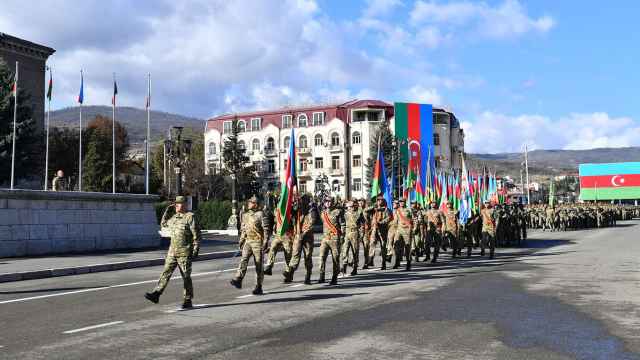
Язык: tongue, language, ethnos
Judging by the huge batch of reader letters in my inbox, paronyms — words with the same root but different meanings — are one of the toughest parts of the Russian language to master. So to continue our education, I’ve come up with a few more.
Let’s start with an easy pair of Russian paronyms — easy because English has the same kind of pair: человеческий and человечный, both adjectives from the noun человек (human being). The first, человеческий, means human, like человеческие голоса (human voices) or человеческая натура (human nature). Согласно теории человеческого капитала, поток мигрантов зависит от получения информации о возможностях трудоустройства в других местах (According to the theory of human capital, the flow of migrants depends on having information about finding work in other places.)
Человечный means humane, the best quality of human beings: человечное отношение (humane attitude). Он считал, что чем дальше от Москвы, тем люди человечнее (He thought that the further you go from Moscow, the more humane people are.) Царь Петр был достаточно велик, но недостаточно человечен (Tsar Peter was great enough, but not humane enough.)
If you’ve been paying attention, you’ll have noticed something about the suffixes — the endings attached to nouns to make them adjectives. In general, -ский turns the noun into an adjective: человек-человеческий (human as a noun and adjective). But the –чный ending describes some kind of quality connected with the noun: человек-человечный (human-humane). The –чный ending often indicates a tendency. So человеческий refers to everything that is human, but человечный refers only to one quality. Sometimes you can think of –чный as the English ending –like: human-like (humane). Автобиографический (autobiographical) and автобиографичный (autobiographical-like).
Bored yet? Moving right along…
Here’s a fun one: язычный, языческий, языковый, языковой. As you all know, язык means tongue in the sense of what’s in your mouth and in the sense of language. You know this if you’ve ever been in a Russian restaurant that decided to save money by using Google translate and offered jellied language as a starter. That’s язык заливной (tongue in aspic).
But there is a third meaning of язык that is now largely obsolete: nation, ethnic group. Makes sense: a nation is a group of people with their own language. In the first translations of the Bible from Greek, язык was the translation of the Greek word ethnos, itself a translation of the Hebrew word goy, which originally meant a nation, and then came to mean a non-Jew. Since in ancient times most non-Jews were pagans, that meaning carried into Russian via Greek and stuck. Hence: язычник (pagan).
So now we have three meanings of a word and a bunch of adjectives. Языческий is the adjective for anything pagan: Все ритуалы говорят о принадлежности их к языческому празднику огня и воды (All of the rituals indicate that they are part of the pagan festival or fire and water.) Язычный has to do with the tongue in medical language, like язычная артерия (lingual artery). You also find it in compound words to mean language, speaking: англоязычный (English speaking).
Confused? Hold on: языковой — stress on last syllable — is the adjective for language: На протяжении многих лет она проводила летние языковые курсы (Over the course of many years she ran summer language classes.) But языковый — stress on the third syllable — is the adjective for tongue: языковые блюда (dishes made with tongue).
Got it? Great. Next week: irregular verb declensions. More fun in the sun.
A Message from The Moscow Times:
Dear readers,
We are facing unprecedented challenges. Russia's Prosecutor General's Office has designated The Moscow Times as an "undesirable" organization, criminalizing our work and putting our staff at risk of prosecution. This follows our earlier unjust labeling as a "foreign agent."
These actions are direct attempts to silence independent journalism in Russia. The authorities claim our work "discredits the decisions of the Russian leadership." We see things differently: we strive to provide accurate, unbiased reporting on Russia.
We, the journalists of The Moscow Times, refuse to be silenced. But to continue our work, we need your help.
Your support, no matter how small, makes a world of difference. If you can, please support us monthly starting from just $2. It's quick to set up, and every contribution makes a significant impact.
By supporting The Moscow Times, you're defending open, independent journalism in the face of repression. Thank you for standing with us.
Remind me later.







